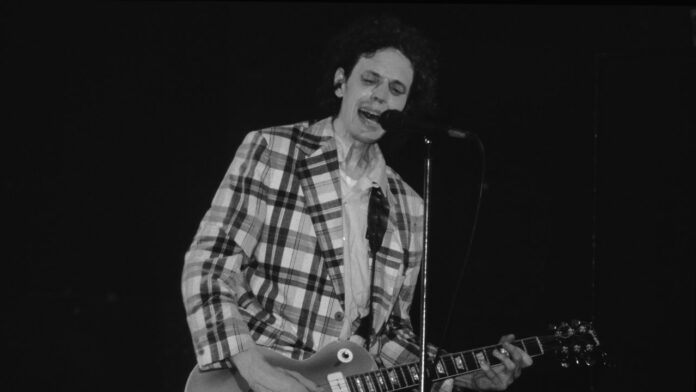Bob “Slim” Dunlap, the Replacements’ former guitarist and a solo artist in his own right, died on Wednesday, December 18, The Minnesota Star Tribune reports. Dunlap’s family said, in a statement, that the musician died of complications from the severe stroke he had in 2012. The family also said he was listening to the Slim Dunlap Band’s Live at the Turf Club (Thank You, Dancers!) at the time of his death. Dunlap was 73 years old.
In 1987, right after the release of Pleased to Meet Me, Dunlap joined the Replacements to fill in for Bob Stinson, the band’s original guitarist who was kicked out the year prior for spiraling behavior. Compared to Stinson’s more wild style, Dunlap played with a gentle, considered approach to the guitar, which not only added depth to the band’s uptempo numbers, but also brought wistful introspection to their quieter songs. He was versatile, bluesy, and dependent—three traits that would influence the Replacements last two studio albums, 1989’s Don’t Tell a Soul and 1991’s All Shook Down. Looking back, singer-guitarist Paul Westerberg and bassist Tommy Stinson credited Dunlap for bringing a spark of creativity and energy to the band during that final run.
Born August 14, 1951, Dunlap grew up in Plainview, Minnesota, and regularly played music in the area. While juggling a myriad of jobs to support his family, including stints as a taxi driver and a janitor at the legendary Minneapolis venue First Avenue, he played in several bands with local staple Curtiss A and filled in for numerous Twin Cities projects. “I played in every little band I could play in, every band that would have me,” he later told the Los Angeles Times. “Slowly but surely, I got this reputation as a guy who could play anything. One night you’d see me play bluegrass in a little pizza shop, the next night it would be hard rock.”
After the Replacements broke up in 1991, Dunlap toured with the Georgia Satellites’ Dan Baird and, on his own time, started penning solo material. He officially made his debut as a singer-songwriter in 1993 with The Old New Me, his first solo full-length. He channeled his love of bluesy rock’n’roll into original songs that felt timeless and earnest, and returned to the drawing board once more for his sophomore album, Times Like This, in 1996.
“The Ballad of the Opening Band,” the penultimate track on The Old New Me, went on to become a cult-favorite of bands across the country for its heartrending depiction of its protagonist, a steady musician who never catches the full spotlight. “People see that as a sad thing, but the guy in the song gets to play,” Dunlap told the Times. “There are so many great musicians in America who didn’t get attention. They haven’t gotten any acclaim, but there’s a specific thing they do that nobody can touch. No one gives them the time of day, but they’re still out there doing it. That’s what I love. This business is all about the little eccentrics out there who get lost in the shuffle.”
Dunlap’s solo records caught the attention and admiration of other big names in the industry, including Bruce Springsteen, who considered himself a big fan even decades later. “I hope I get a chance to cut one of his songs,” Springsteen told NPR in 2014. “Check out the two Slim Dunlap records, because they’re just beautiful rock ‘n’ roll records. I found them to be deeply touching and emotional.”
After Dunlap had his stroke, in 2012, artists rallied together to help raise money for his healthcare costs. Paul Westerberg and Tommy Stinson recorded a four-song EP to benefit their former bandmate. Others recorded covers of Dunlap’s own songs for the nonprofit project Songs for Slim, including Lucinda Williams, Steve Earle, Wilco’s Jeff Tweedy, Pixies’ Frank Black, X’s John Doe, the Hold Steady’s Craig Finn, Soul Asylum, and more.
Upon hearing of Dunlap’s death, numerous musicians have taken to social media to pay their respects, including Superchunk’s Jon Wurster, the Ataris, and more. “Great musician, very kind and gentle in our experience,” wrote the Posies on Instagram. “We first supported the Mats in Vancouver in May ‘89 – our first ever show in Canada. We were suddenly all legal drinking age once we crossed the border and we were given quite a few potent Kokanee beers. One of us was later regurgitating same beers behind the [Commodore Ballroom] Slim came downstairs to head to the bus, paused at said musician, and gently patted him on the back – ‘don’t worry, son… one day you’ll learn how to drink!’”
Source : Pitchfork






